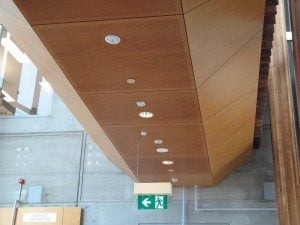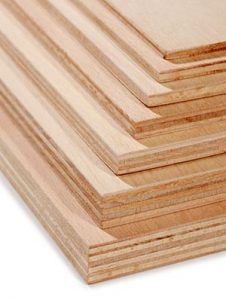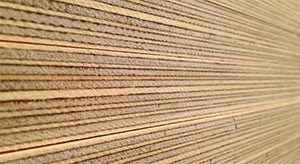By: Peter Jones – Plywood has come a long way since its introduction in the early 20th century. For decades, plywood was often seen as just a substitute to solid wood.
Today, however, plywood has become the primary choice for many builders and home owners.
Here are 10 of the biggest benefits of plywood, including one that is absolutely critical considering the state of the world today.
 1. Plywood looks great
1. Plywood looks great
Let’s start with what can be seen from the outside. Few people will argue against the fact that plywood looks really great. With plywood panel typically covered with solid wood, plywood looks just as great as real wood. It would look even greater if a good quality veneer is used.
2. Plywood is strong
If you believe that solid wood is strong, you are absolutely right. Plywood, however, is even stronger, whether you believe it or not. Whatever inherent issues with the strength of natural wood, plywood has arguably solved them all.
With the cross-grained nature of the structure of plywood, its strength is well and evenly distributed, while solid wood tends to be just stronger along the grain.
Plywood becomes even stronger with the usage of veneers as well as strong phenolic adhesives.
3. Plywood is durable
Unlike solid wood, plywood boasts of uniform strength along grains regardless of direction. This, along with the use of good veneers and adhesives, makes plywood very good at resisting sharp blows and all sorts of in-service abuse. That makes it a very durable product engineered wood product.
4. Plywood is lightweight
For all its strength, plywood is surprisingly so much lighter than solid wood. That makes plywood even more perfect for furniture-making. Heavier solid wood, meanwhile, can prove to be rather unwieldy when crafting furniture or when using it for other commercial applications.
 5. Plywood comes in large sizes
5. Plywood comes in large sizes
Another of the many benefits of plywood. Would a single piece of solid wood be big enough to allow you to make furniture? Of course not. Standard plywood sheets, on the other hand, come in large sizes, with lengths of at least 1800mm and widths generally at 1200mm. You can certainly do a lot with engineered wood products of that size.
6. Plywood covers a much bigger area
Since plywood comes in larger sizes, it follows that plywood has it over solid wood when it comes to square foot coverage.
One standard plywood sheet alone would be big enough to make sure to cover an area of a certain size. There will be no gaps or uneven ends, and wastage will be very minimal.
7. Plywood doesn’t split easily
One of the great disadvantages of working with solid wood is its tendency to split along the grain, especially when you try to drive a nail or screw through it. Plywood, however, doesn’t split that easily because of its cross-layered structure.
8. Plywood is great for curved surfaces
When was the last time you had it easy creating curved surfaces with solid wood? Probably never, but if you did try something like that, the results aren’t likely to be great. When you make curved surfaces using solid wood, the edges would probably be rather rough and uneven. Plywood, on the other hand, can be made to fit any curved surface smoothly and easily.
 9. Plywood offers more value for your money
9. Plywood offers more value for your money
You can rest assured that when you use plywood for any project, there will be very little wastage. You can practically utilise every square inch of a standard plywood sheet. Because it’s light, transporting plywood also shouldn’t be a problem.
Best of all, the price of plywood will always be lower than that of solid wood. Plywood is a cost-effective engineered wood product, and that makes it even more popular among home owners and builders these days.
10. Plywood is very eco-friendly
To say that plywood is one of the most environmentally friendly products created by man may sound a bit ironic, but it certainly wouldn’t be an exaggeration. Sure, plywood uses wood, but manufacturing a workable sheet requires lesser wood than, well, solid wood products.
That means more timber is conserved, and that makes plywood an eco-friendly product. This is absolutely important, considering the worrisome state of the environment and the world in general today.
With all the benefits of plywood, choosing it for any project that requires wooden materials is the smart way to go. To see which type plywood would best suit your purposes, check out our wide range of plywood products here.



